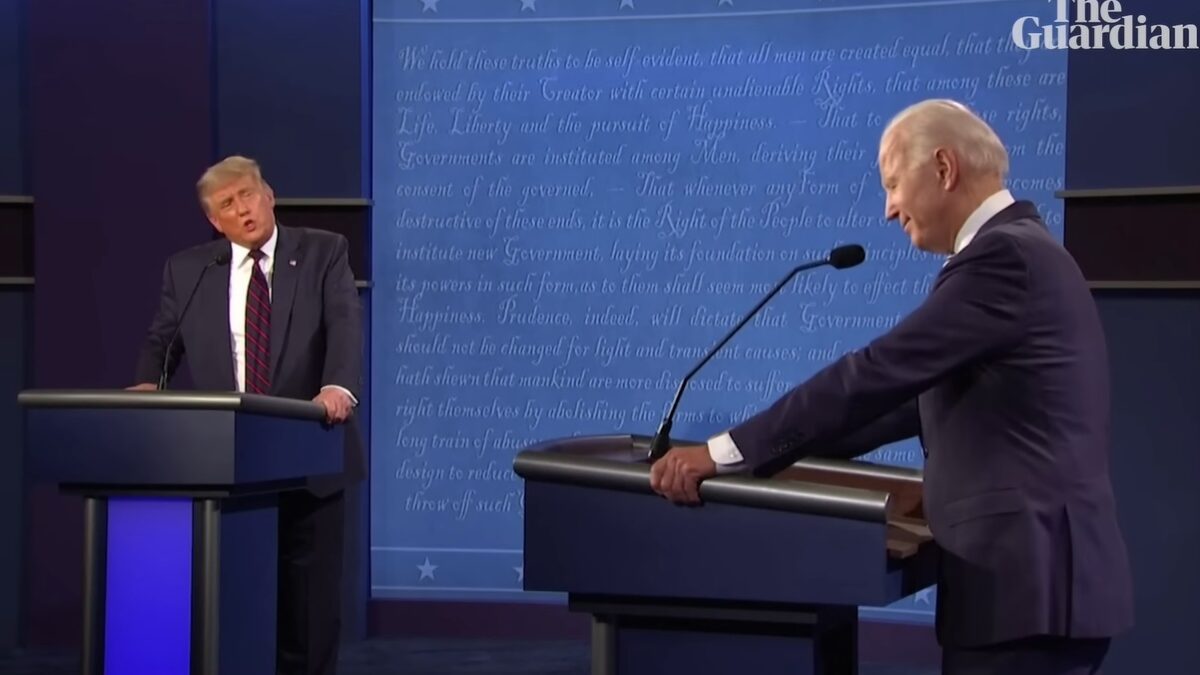Mostly because the evidence confirms all my priors.
Elon Musk’s release of emails relating to Twitter’s 2020 presidential election censorship efforts confirms that big political media, Big Tech companies, and former intelligence officials were part of a ratf—ing operation in 2020. It confirms that the social media platform suppressed unfavorable stories to benefit one party, dispelling the notion that the platform acted as a neutral arbiter. It confirms that claims of “dis-” and “misinformation” are often used by censors to quash inconvenient news and debate. And the reaction from political journos to these revelations confirms there are no regrets.
We haven’t even seen all the emails. Not that we need a Ron Klain email demanding Twitter suspend the New York Post’s account to know what happened. Coordination doesn’t necessitate explicit instructions from a political Svengali. People know what to do without being told. Partisans coalesce around talking points and groupthink metastasizes. This happens all the time on both sides. It happened when journalist Matt Taibbi was reporting on the Twitter files the other night, and virtually every big left-wing account dropped nearly the same rhetoric and framing to smear him.
What we learned was that plenty of Twitter higher-ups knew the company’s rationale for killing a major news story right before an election was hopelessly rickety.
“I’m struggling to understand the policy basis for marking this as unsafe,” wrote communications official Trenton Kennedy about the Hunter story. “Can we truthfully claim that this is part of the policy?” then-Vice President of Global Communications Brandon Borrman asked.
But then, General Counsel Jim Baker, one of the Democrats who helped run the Russia collusion swindle on Americans (who was fired Tuesday for vetting the first batch of released emails without telling management), responded that it was “reasonable for us to assume that they may have been [hacked] and that caution is warranted.”
All they needed were 51 former intelligence officials, including known perjurers like Jim Clapper and John Brennan, to claim the Hunter Biden story had “all the classic earmarks of a Russian information operation.” They passed this deceitful claim to the unscrupulous “journalist” Natasha Bertrand, then at Politico. From there, the story was repeated endlessly by gullible reporters and/or willful hacks. And Twitter had its justification.
They would never be able to hide the story, but they could undercut the public’s trust in the newsworthy aspects. If more voters believed that Joe had known about his son cashing in on the family name or that there was circumstantial evidence that the former vice president was a beneficiary of those shady Chicom and Ukrainian deals, it could have mattered. And, after the media had convinced themselves that the Hillary Clinton email scandal — a completely legitimate story — had handed the election to that orange fascist, they would never let journalism get in the way again.
Now, if journalists had gotten their hands on a laptop containing pictures of Don Jr. weighing out 21 grams of crack with a, um, “sex worker,” there is not a social media platform or major media outlet in the universe that would have banned the story. And if that laptop had contained circumstantial evidence linking the Republican presidential candidate to a 10 percent cut of that Burisma cash it would have dominated the news — and rightfully so.
Yet, The Washington Post’s Philip Bump and Glenn Kessler are still arguing that their newspaper couldn’t pass along the story without doing its own independent verification. When I noted that The Washington Post did not make a habit of handing over data and sources to competing newspapers, Bump responded: “You didn’t know that other outlets won’t run a report on a Post scoop without confirming it themselves? You seem surprisingly underinformed about how actual journalism works, which I suppose isn’t really a surprise.”
Am I? Because media outlets, including The Washington Post, run scoops from other organizations all the time and simply credit the competing outlet. It would have taken Bump only a few minutes to pursue his own archives to find dozens of such examples. This has not only been the norm since I started in the business more than two decades ago, but since journalism was invented.
Of course, the Hunter story — with receipts, hard evidence, and on-the-record witnesses — had far more journalistic substantiation than virtually any of the anonymous one-source Russia-collusion “scoops” that Bump and The Washington Post peddled for years. Though, to be fair, some of those stories, like Jeffrey Goldberg’s “Losers and Suckers” story or The New York Times’s Russia “bounty” story — which WaPo columnists shared as irrefutable and unimpeachable — seemingly pulled their sourcing from the ether.
That’s not to say that major outlets didn’t talk about the Hunter story. They did. Quite a bit. Rather than deploying reporters to gather evidence to either verify or debunk specifics, reporters ran process stories to discredit the reporting. The New York Times ran an anonymously sourced piece highlighting the supposedly nagging “doubts” in the New York Post’s newsroom over the veracity of the emails. NBC’s Ken Dilanian reported that the Feds were examining “whether alleged Hunter Biden emails are linked to a foreign intel operation.” (What was the outcome?) Left-wing activists Ben Collins and Brandy Zadrozny wrote about “How a fake persona laid the groundwork for a Hunter Biden conspiracy deluge” and “Inside the campaign to ‘pizzagate’ Hunter Biden” — which, as with most of their writing, amplifies fringe positions to discredit genuine stories. The Washington Post’s preposterous “explainer” ignored the most revelatory aspects of the reporting and instead asked rhetorical questions like, “What does the Biden campaign say?” and “What does Hunter Biden say?” and “How do we know the email is authentic?” (Their answer: “We do not.”) The Post had never treated a scoop that confirmed their narrative from another major left-wing outlet in this way. And, of course, all the emails would be authenticated.
Others have made a big deal over the fact that Trump was president when all this happened (true) and that Twitter hadn’t engaged in any First Amendment violations (probably true). So what? Limiting speech during a presidential campaign is still an illiberal and unethical act, even if it is legal. And entrenched state interests — intelligence officials, for example — can work to undermine the political process in numerous ways. Not long ago, Mark Zuckerberg told Joe Rogan that Facebook had limited the Hunter Biden story because of warnings from the FBI about “misinformation.” In better times, the news of a giant, rent-seeking company censoring a political story at the behest of the Feds would set off blaring alarms among outlets that fashion themselves the bulwarks of democracy.
Now, I have no clue if the Hunter story would have turned the 2020 election, and neither do you, but it would be truly refreshing if those dismissing the Twitter files would simply admit that they believe Donald Trump, and Republicans in general, are existential threats to “democracy,” and so journalistic ethics and free expression ideals need to be shelved for the greater good. It’s an illiberal position, sure, but an honest one.









